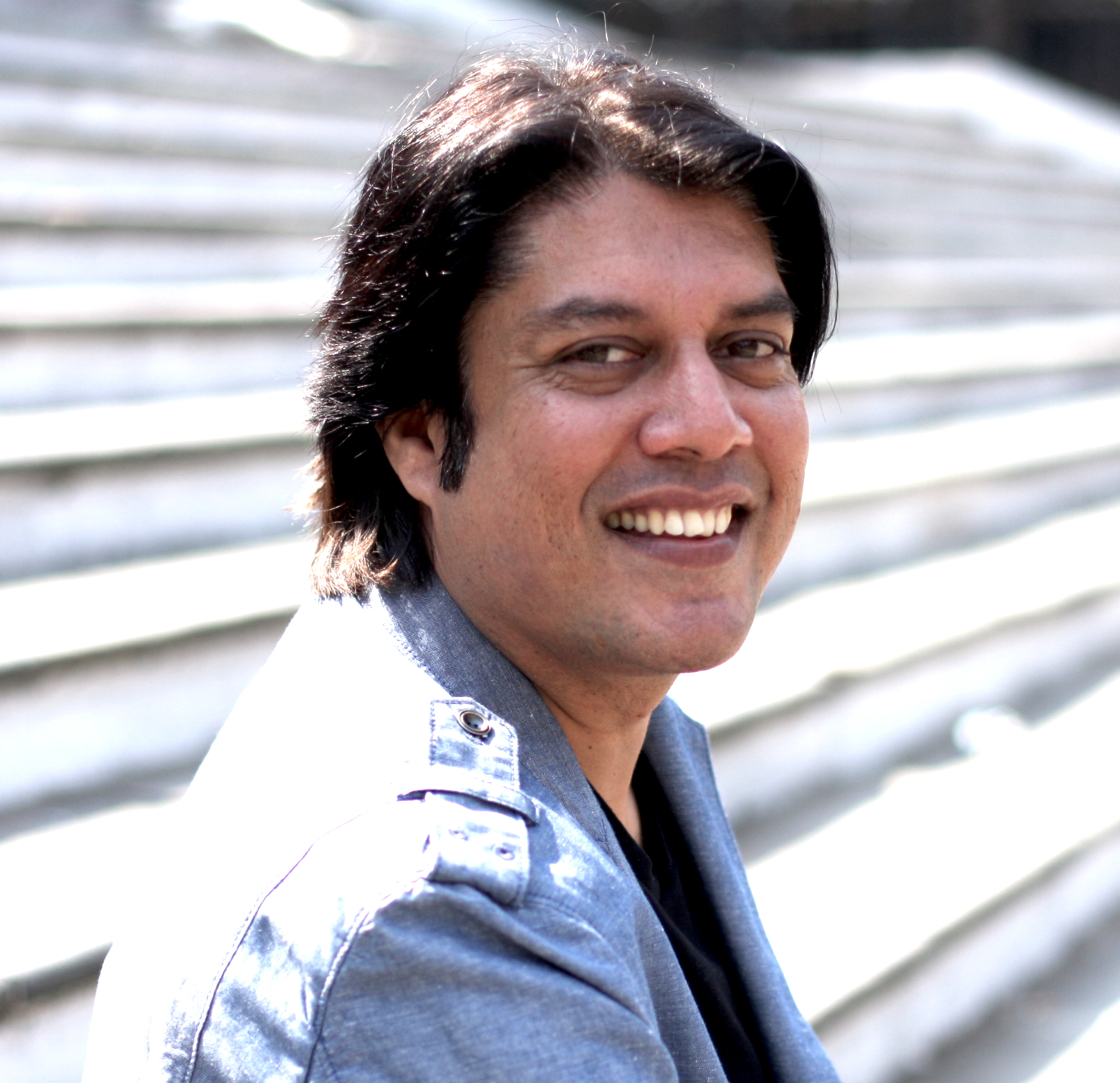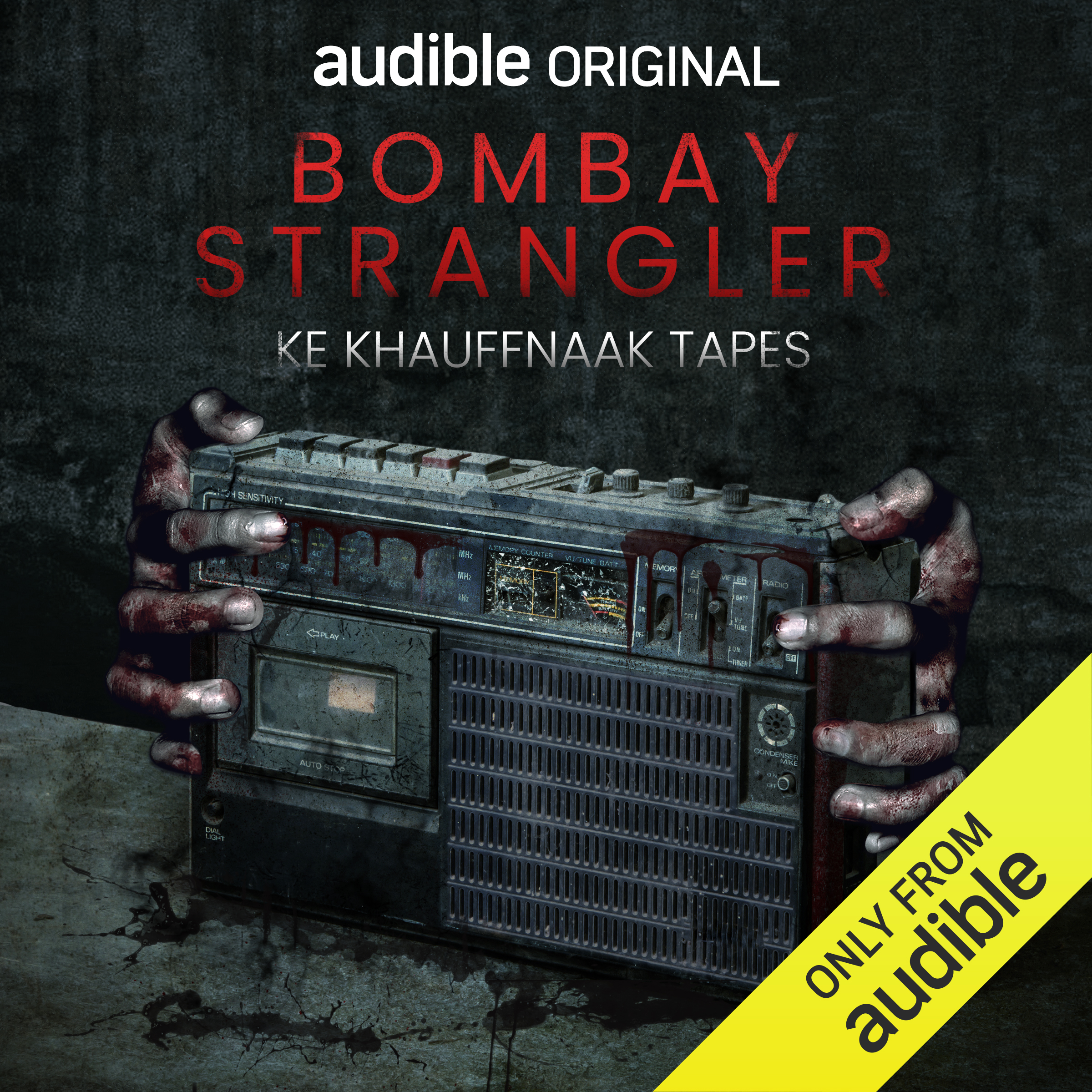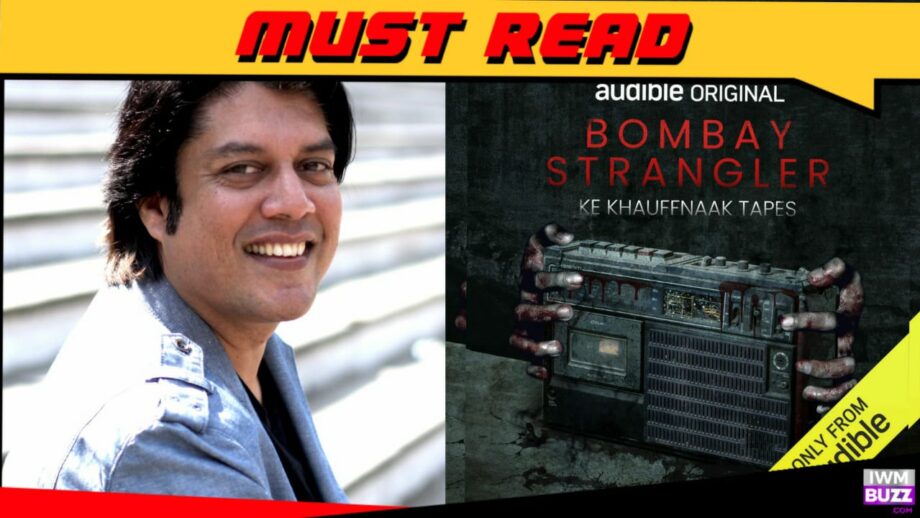Piyush Jha, the Dashiell Hammett of Mumbai, is one of the most reputed names in the Indian entertainment industry. His versatility sprawls over direction, screenwriting and much more artistry. Some of his finest works come in the crime and cliff-hanger novel play. His debut novel, Mumbaistan, is an anthology of three crime fiction thriller novels that explore the underbelly of Mumbai. And guess what, we got to engage with the media maverick in an exclusive conversation to talk about his latest ‘Audible Original’, ‘Bombay Stranglers Ke Khauffnaak Tapes’. Read to find out –
The concept of radio dramas has been popular for a long time. Slowly, audio stories are coming in and bringing back that trend. What are your first memories of listening to radio dramas?
During my early childhood, radio was still a source of entertainment. My mother was a big fan of Radio and I used to listen to shows with her. Film songs on Binaca Geet Mala etc. on Vividh Bharti/ Radio Ceylon were integral to every middle-class family. Radio Detective Dramas shows like Modi Ke Matwaale Rahi and Inspector Eagle were very popular. There was also like Hawa Mahal- this was an enactment of sorts of slice-of-life comedic stories of various writers in an audio-skit format. These shows left quite an impression on me, I guess. As a teenager, I enjoyed BBC Radio Dramas too. But it is now with the digital explosion that I was able to experience this format at its best and truly indulge myself in the creativity involved in creating a show for the audio medium.
Unlike audio-visual mediums, it’s completely different in audio-fiction dramas since the audience relies a lot on imagination. As a writer, how difficult is it to keep up to expectations so that the imagination never becomes a problem?
As accustomed as we are today to video content, rich audio fiction shows offer an immersive experience like few others. One is not distracted by visuals so to speak. Instead, the mind with the help of dialogues, music and sound effects creates its own visual story in the mind. As a writer, you have to go back to the storytelling of the past to spin a yarn with every detail in the most engaging way so that you get the listeners to a point of interest where they can’t resist asking- “Phir Kya Hua- What Happens Next?” The writing also has to be economical, crisp and clear without any ambiguity so that you don’t lose the listener or confuse him.
How important do you think voice-over acting plays a role in bringing the actual emotions of the script into foray when it comes to an audio fiction tale. Is the success of an audio-fiction drama heavily dependent on voice acting?
The voice actors and their dialogue delivery make or break an audio show. Unlike video shows, one false note from the voice-over artists or actors can kill the story, so they are critical to the success of an audio drama or audio-fiction series. Each actor’s accent reflects so much of who he is and where he comes from, so we need to be very careful when we cast them for particular roles.
The kind of sound effects and production procedure followed for your show ‘Bombay Strangler Ke Khauffnaak Tapes’ on Amazon Audible is pretty much equivalent to any web series minus the visual bit. Were you always particular about the fact that your script has to have the best quality to justify the narrative?
I was very excited about the work being done in the audio-fiction space and wanted ‘Bombay Stranglers Ke Khauffnaak Tapes’ to offer a very unique experience for the listeners. And that thought was central when I crafted the story. I was fortunate that I got to work with an amazing team at Audible who understood and aided my vision for the show with very good production value. We were clear right from the start that we wanted to create a show that will be on par with any OTT show on any platform in terms of the performance of actors, the use of sound effects, music and the overall production design. In this respect, the Audible team was wonderful to collaborate with. And besides writing the show, as the Creative Director of the show, I was integral to all creative decisions which resulted in a very satisfying project at the end. The feedback from listeners has also been very positive.
How much research was involved in getting the script of ‘Bombay Strangler Ke Khauffnaak Tapes’ absolutely spot on? How did it eventually find its way to the ‘Audible’ platform?
I had been listening to some fantastic audio shows for a while and the lockdown allowed me to experiment. I had worked out quite a detailed story which I pitched to the Audible team. They were very receptive and liked the idea and even offered some nuanced suggestions which I found very helpful in creating the show. As you know, the show is an Audio-first original that uses sound at the organic level to tell a suspenseful story. So I did some amount of research on how sound should be used in storytelling.
What according to you is the primary USP of ‘Bombay Strangler Ke Khauffnaak Tapes’?
Bombay Strangler is both a crime and a supernatural thriller with a very strong element of sound. A critical element of sound is the missing piece without which the story would not be complete. The mystery would not be solved. Also, it marries the idea of the old vs. the new Analog sound from Audio cassette tapes to the new digital sound medium. In that sense, the show has an appeal for all ages. To my mind, it was the perfect story to make my audio-fiction debut with.
How much does experience matter when it comes to getting the script of an audio narrative right? A relatively new writer might find it difficult since there’s no visual attribute?
As in all fields, experience is an advantage but the lack of it is not a disqualification. I ventured forth even though my storytelling experience has been in films and books. My experience in movies helped me, as I understand the technical and creative aspects of sound, music and dialogues. My experience in crafting suspenseful stories helped me in creating a thrilling narrative. Today as I am working on more such shows I can consider myself more knowledgeable in this medium and have some level of expertise. But this is still new territory in a sense. And we all are learning. So, I guess as a writer and creator one has to keep oneself open to the particular needs of the audio medium.
Lastly, what is the future of Audio-fiction dramas in India?
I think that Audio-fiction is the new creative frontier. The medium is great for entertainment while going about our busy multi-task oriented lives today. It is the bridge between entertainment from the screen and entertainment from the written word on the page. A person can get entertained or informed while performing mundane tasks like travelling to work, exercising, working in the kitchen, lying in bed etc. And great new creative Ideas are being explored here internationally and in India. I’m quite deeply immersed in this field now and am creating and producing many new shows because I firmly believe that Audio-fiction is a medium of the future.




